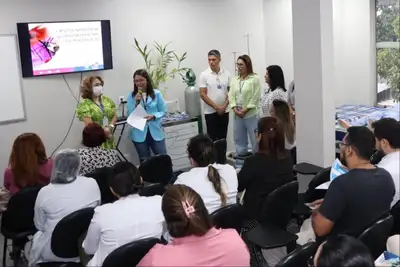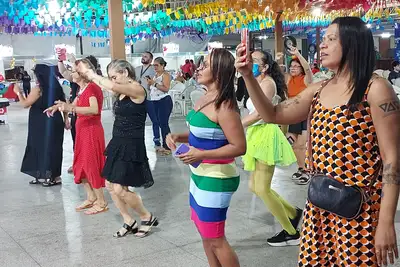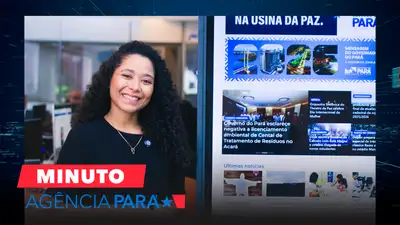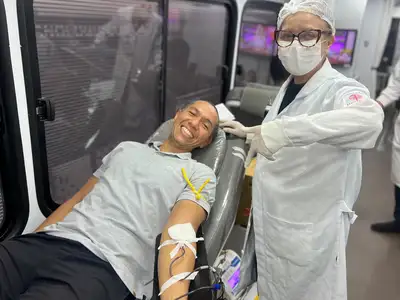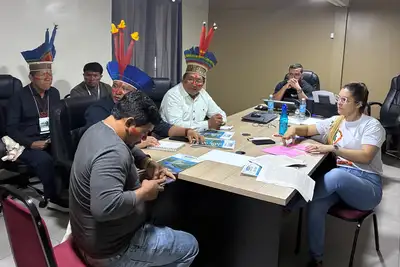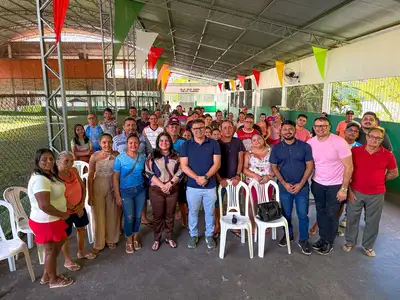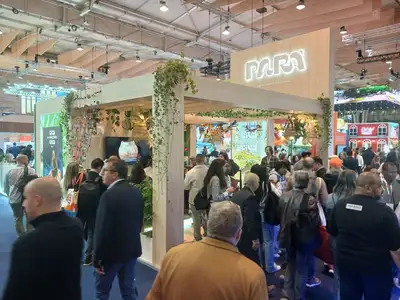Amazon Museum holds Climate Justice Forum on October 16 and 17
Initiative with free registration, in partnership with the Museum of Favelas in São Paulo, addressing the theme 'Peripheries, forests, and futures of the global South'
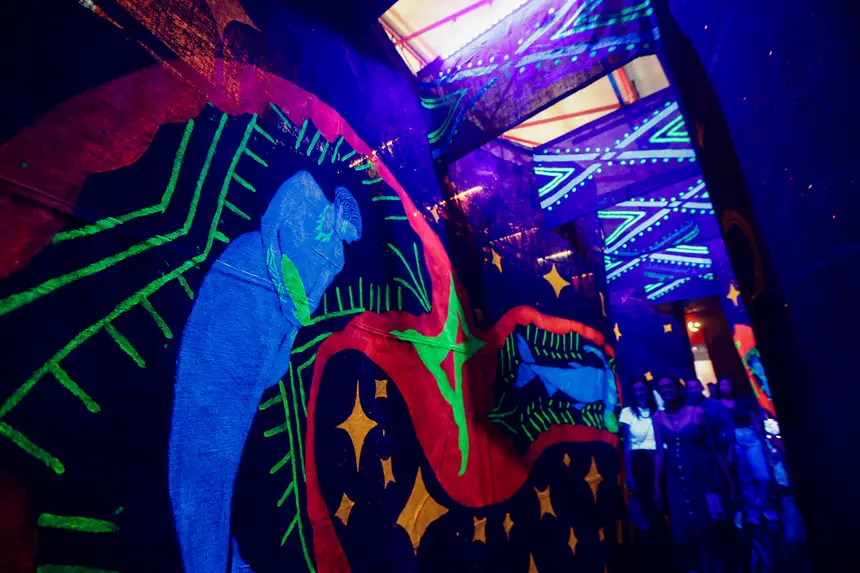
The Amazon Museum (MAZ) is holding the Climate Justice Forum this Thursday (16) and Friday (17). In partnership with the Museum of Favelas in São Paulo, the event is open to the public and has as its central theme "Peripheries, forests, and futures of the global South." Discussions will be led by community leaders, artists, communicators, and researchers from different territories.
During the program, the event proposes reflections on the narratives of confronting the climate crisis and the future of the Amazon region, as well as the rest of the planet. Registration is free and can be done on-site.
Grazielle Giacomo, technical manager of MAZ, explains that the proposal is to create a glimpse of the future in community solutions, based on the diversity of experiences of the spokespeople from the global South. "By bringing together urban peripheries and Amazonian communities, we want to highlight that solutions to the climate crisis also come from the margins of communities that reinvent living amidst the transformations of the planet," she states.
The director of the Museum of Favelas, Natália Cunha, also assesses the urgency of discussing solutions, for what she describes as no longer a distant future, especially for those most affected, who reside in the peripheries.
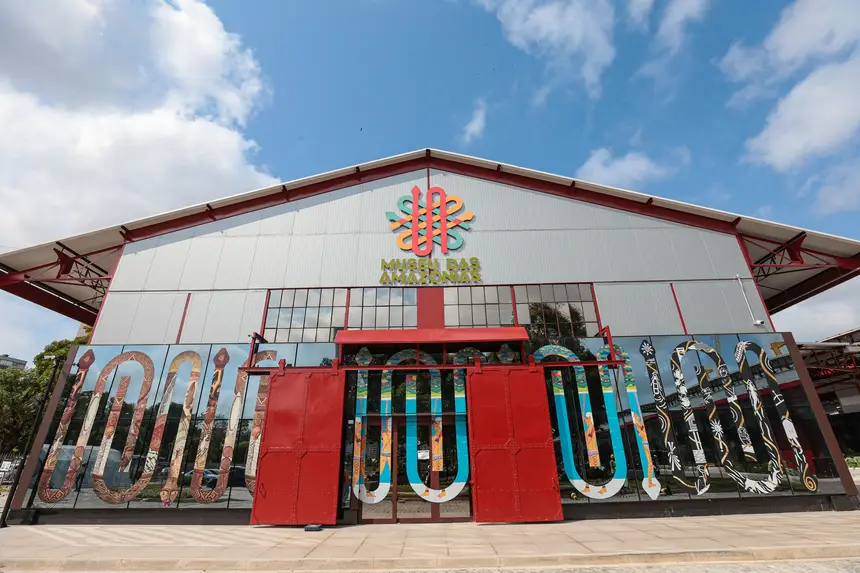
"The climate crisis has ceased to be a future concern; it is an urgent issue, its impacts affect the population unevenly, and the most affected are black, peripheral, indigenous, and migrant people, exposed to environmental risks such as floods, landslides, pollution, and extreme heat. Giving space for these voices to be heard is to open real pathways for collective care and solutions for now and a fairer future," says Cunha.
About MAZ
The Amazon Museum is a symbol of cooperation and collective commitment to valuing, preserving, and projecting the cultural, scientific, and environmental heritage of the region, resulting from an initiative of the Government of the State of Pará, carried out by the State Secretariat of Culture (Secult) in partnership with the Ministry of Culture, through the Federal Law of Cultural Incentive (Lei Rouanet).
In addition to the Ministry of Science, Technology and Innovation (MCTI), and the Institute of Development and Management (IDG), which implemented it, in partnership with the Museu Paraense Emílio Goeldi. The project also receives support from the private sector, through Vale, CAF, BNDES, Finep, and the collaboration of companies such as Hydro, New Fortress Energy, Ipiranga, Mercado Livre, and Ultracargo.
Check the program:
October 16 – Climate Justice is Territorial Justice
The opening will feature speeches from representatives of the Museum of Favelas and the Amazon Museum.
10 AM – Panel 1: Urbanization, environmental racism, and the climate crisis on the margins of the country
Debate on the multiple urban Amazons and the impact of the climate crisis on peripheral populations.
Axes: environmental racism, invisibility of Amazonian peripheries, housing, sanitation, and urban mobility.
Guests: Aline Meiguins, professor and Coordinator of the Research Group in Hydroenvironmental Studies and Modeling (UFPA) and Ana Luiza de Araújo (Tucunduba Pró Lago Verde Movement | PA) - Tucunduba Pró Lago Verde Movement
Moderation: Andrey Leão (Art-education – MAZ).
2 PM – Panel 2: Possible futures – art, culture, and imagination
Reflection on culture as a tool for confronting the crisis and creating other worlds.
Axes: peripheral and Amazonian aesthetics as political power; decolonial narratives and black and indigenous utopias; culture, memory, and art as social technologies for the future.
Guests: Ursula Vidal (Secretary of Culture of the State) and Jeft Dias (Psica). Moderation: Jairo Malta (curator of the Museum of Favelas).
October 17 – From the Global South to other futures
The opening of the second day will also feature representatives from the partner museums.
10 AM – Panel 3: Knowledge from the Global South – living territories and ancestral technologies
Debate on the connections between the Amazon, Brazil's extremes, and the Global South, highlighting territorial knowledge and practices.
Axes: agroecology, community bioeconomy, popular innovation, and bridges between indigenous, quilombola, and peripheral knowledge.
Guests: Tainah Fagundes, Partner of Criativa DaTribu and Territorial Director of Casa Niaré, Isabela Lima, CEO of Bioma Sustentável, and Silvia Rodrigues, Biojóias do Combu
Moderation: Arlan Seabra, Art-education MAS
2 PM – Panel 4: Who communicates our futures?
Discussion on the communicational protagonism of the margins and the role of popular communication in the narrative dispute about the climate.
Axes: community media and peripheral networks; insurgency in networks; youth and transnational climate communication.
Guests: André Godinho, executive secretary of COP 30 of the city hall of Belém, Vitória Leona, multidisciplinary and nomadic artist, and Erivelton Chaves, from the Cuíras Network.
Moderation: Camila Costa (Communication Coordinator of MAZ).
Service:
Climate Justice Forum
Amazon Museum – Warehouse 4A, Porto Futuro, Belém (PA)
Dates: October 16 and 17, 2025
Free entry
*With information from the Communication Advisory of the Amazon Museum



